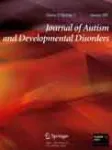[article]
| Titre : |
Exploring the Social Impact of Being a Typical Peer Model for Included Children with Autism Spectrum Disorder |
| Type de document : |
texte imprimÃĐ |
| Auteurs : |
Jill LOCKE, Auteur ; Erin ROTHERAM-FULLER, Auteur ; Connie KASARI, Auteur |
| AnnÃĐe de publication : |
2012 |
| Article en page(s) : |
p.1895-1905 |
| Langues : |
Anglais (eng) |
| Mots-clÃĐs : |
Peer models Autism Social networks |
| Index. dÃĐcimale : |
PER Périodiques |
| RÃĐsumÃĐ : |
This study examined the social impact of being a typical peer model as part of a social skills intervention for children with autism spectrum disorder (ASD). Participants were drawn from a randomized-controlled-treatment trial that examined the effects of targeted interventions on the social networks of 60 elementary-aged children with ASD. Results demonstrated that typical peer models had higher social network centrality, received friendships, friendship quality, and less loneliness than non-peer models. Peer models were also more likely to be connected with children with ASD than non-peer models at baseline and exit. These results suggest that typical peers can be socially connected to children with ASD, as well as other classmates, and maintain a strong and positive role within the classroom. |
| En ligne : |
http://dx.doi.org/10.1007/s10803-011-1437-0 |
| Permalink : |
https://www.cra-rhone-alpes.org/cid/opac_css/index.php?lvl=notice_display&id=180 |
in Journal of Autism and Developmental Disorders > 42-9 (September 2012) . - p.1895-1905
[article] Exploring the Social Impact of Being a Typical Peer Model for Included Children with Autism Spectrum Disorder [texte imprimÃĐ] / Jill LOCKE, Auteur ; Erin ROTHERAM-FULLER, Auteur ; Connie KASARI, Auteur . - 2012 . - p.1895-1905. Langues : Anglais ( eng) in Journal of Autism and Developmental Disorders > 42-9 (September 2012) . - p.1895-1905
| Mots-clÃĐs : |
Peer models Autism Social networks |
| Index. dÃĐcimale : |
PER Périodiques |
| RÃĐsumÃĐ : |
This study examined the social impact of being a typical peer model as part of a social skills intervention for children with autism spectrum disorder (ASD). Participants were drawn from a randomized-controlled-treatment trial that examined the effects of targeted interventions on the social networks of 60 elementary-aged children with ASD. Results demonstrated that typical peer models had higher social network centrality, received friendships, friendship quality, and less loneliness than non-peer models. Peer models were also more likely to be connected with children with ASD than non-peer models at baseline and exit. These results suggest that typical peers can be socially connected to children with ASD, as well as other classmates, and maintain a strong and positive role within the classroom. |
| En ligne : |
http://dx.doi.org/10.1007/s10803-011-1437-0 |
| Permalink : |
https://www.cra-rhone-alpes.org/cid/opac_css/index.php?lvl=notice_display&id=180 |
|  |


